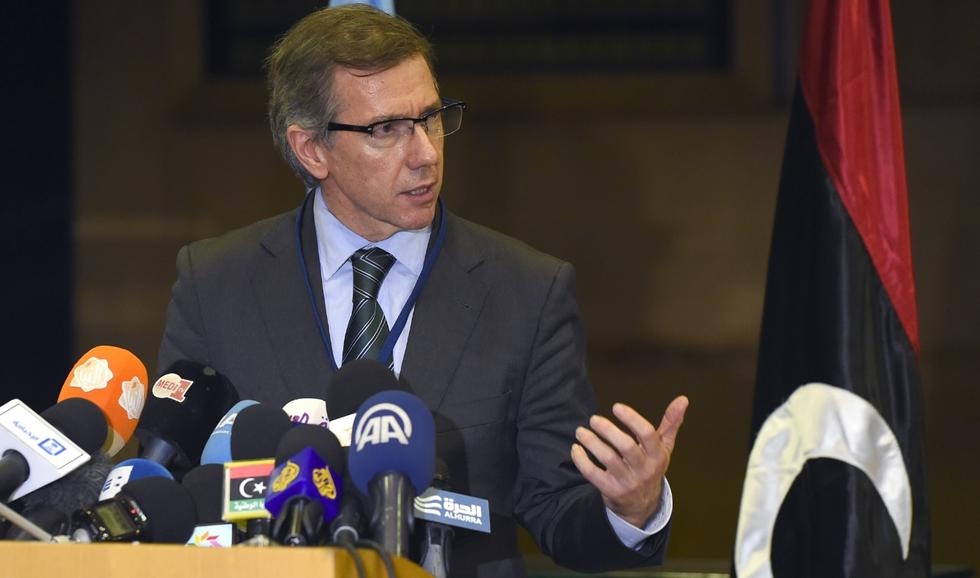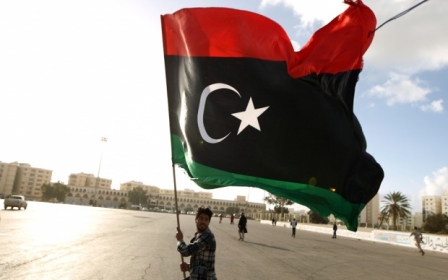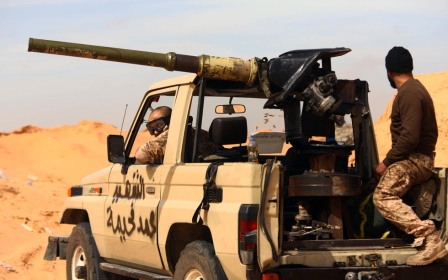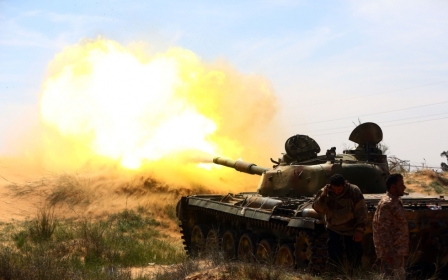Most Libyan groups 'are now supporting a political solution': UN

The UN envoy for Libya said Tuesday, ahead of renewed peace talks, that there can be "no military solution" to the conflict in the country, and most armed groups now support reaching a political agreement.
"There's no military solution" in Libya, UN Support Mission in Libya chief Bernardino Leon told the US-Islamic World Forum in Qatar, saying a meeting of Libyan parties and political leaders will begin in Algeria on Wednesday.
Leon said he believed 75 per cent of political leaders in the strife-torn country wanted peace.
"I think we will see an opportunity (for peace)," he added. "Most groups are now supporting a political solution."
He said many of the competing factions in Libya were "strong enough to go to war, not strong enough to win a war".
Three rounds of talks have so far taken place in North Africa, but failed to bring peace.
During April talks in Morocco, Leon and other negotiators said the groups were very close to an agreement on a draft proposal to form a national unity government that would serve for a maximum of two years.
Abdelkader Messahel, Algeria's minister for African and Maghreb affairs, said Wednesday's talks "will be more consequential since new influential Libyan personalities will join."
Messahel did not elaborate.
Libya is divided between two rival governments and parliaments: one is based in Tripoli while the other is based Tobruk.
Despite Leon's guarded optimism, the talks take place against a backdrop of increasing fears over the influence of the Islamic State (IS).
Tripoli government calls for 'mobilisation' against IS
Libya's Tripoli-based government called on Sunday for a general mobilisation against the IS.
IS had declared "war" on the powerful Fajr Libya (Libya Dawn) militia alliance, who are loyal to Tripoli-based government, killing five of its fighters in a suicide bombing.
"The apostates of Fajr Libya... must know that a war is coming to cleanse the land of their filth unless they repent and go back to their true religion," said IS on Twitter.
The acting prime minister of the Tripoli government, Mohammed Khalifa al-Guwail, responded by calling on armed forces to mobilise against IS in a statement read on television.
"The Tripoli government is determined to continue fighting extremism and criminal gangs who operate under what is known as the Islamic State until they are uprooted," the statement said.
It urged "officers, soldiers... and all security forces and revolutionaries to mobilise" against IS, which poses a "big threat" to Libya's security.
The Tripoli government also called on the international community to help it in its battle against IS by providing "technical, logistical and intelligence" support.
On Saturday, the rival Tobruk-based government also pleaded with the international community to provide it with weapons to battle IS.
A statement warned that IS plans on seizing "oilfields to fund its operations", as it has done in Syria and Iraq.
On Thursday, IS seized control of the airport in Sirte, Muammar Gaddafi's hometown. It was the first time that IS in Libya has recorded such a military gain.
Officials in Tripoli said that IS had allied with Gaddafi supporters to deploy across Sirte.
New MEE newsletter: Jerusalem Dispatch
Sign up to get the latest insights and analysis on Israel-Palestine, alongside Turkey Unpacked and other MEE newsletters
Middle East Eye delivers independent and unrivalled coverage and analysis of the Middle East, North Africa and beyond. To learn more about republishing this content and the associated fees, please fill out this form. More about MEE can be found here.




